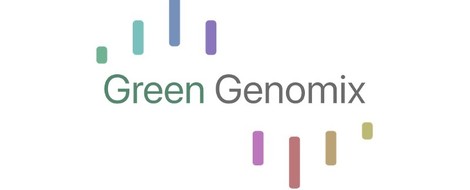Your podcast discovery platform
Curious minds select the most fascinating podcasts from around the world. Discover hand-piqd audio recommendations on your favorite topics.

piqer for: Health and Sanity Boom and bust Climate and Environment
Melissa Hutsell is an award-winning freelance journalist with a deep rooted passion for both community and international journalism. She was born and raised in Northern California, and has lived, studied, worked, and traveled in more 20 different countries. Melissa holds a Master's degree in Global Journalism from City University London, as well as degrees in Journalism and Globalization from Humboldt State University. Though she covers various topics as both a writer and editor, she specializes in business and cannabis journalism.
"23 And Me For Weed:" DNA Kit Reveals How Your Body Responds To Cannabis
DNA test kits can help cannabis consumers find which products are best for them. These kits, like those developed by Green Genomix, use an individual's DNA to identify genetic variants responsible for their unique biochemical makeup – including how different cannabinoids (THC, CBD) affect them.
This episode of the Lit and Lucid podcast features a discussion with Green Genomix founder Jackson Rowland on the science behind the concept.
The tests are similar to 23 and Me, but for weed, the host explains. Rowland was inspired to create Green Genomix as a way to give people actionable information they can use to increase their wellbeing.
“Cannabinoids and human genetics are under-researched, both independently and in relationship to one another,” Rowland continues, “We’ve found a way to use genetics to help find which cannabinoids are best for those who want to use cannabis functionally.“
What about genetics makes them a good indicator for cannabis use? Genetics are objective, Rowland explains; we all have the same genes, just different variants. Those variants give us different characteristics. Some variants are tied to how we experience the effects of cannabis. The company has collected data on these variants, and experiences, and uses that knowledge in a predictive manner.
They test for nine variants in six categories: Pain perception, metabolism, ECS sensitivity, anxiety, cognition, and mood and behavior.
Variants aren’t absolute, Rowland explains. We can only say someone is “x percent” likely to experience something in a certain way.
“So I can order something with 26 percent THC or CBD?” asks one host. “Yes,” answers Rowland.
So far, feedback shows customers are satisfied and impressed with their results. But it’s just the tip of the iceberg, Rowland says: “Using genetics as a personalized approach to medicine is the future. “
